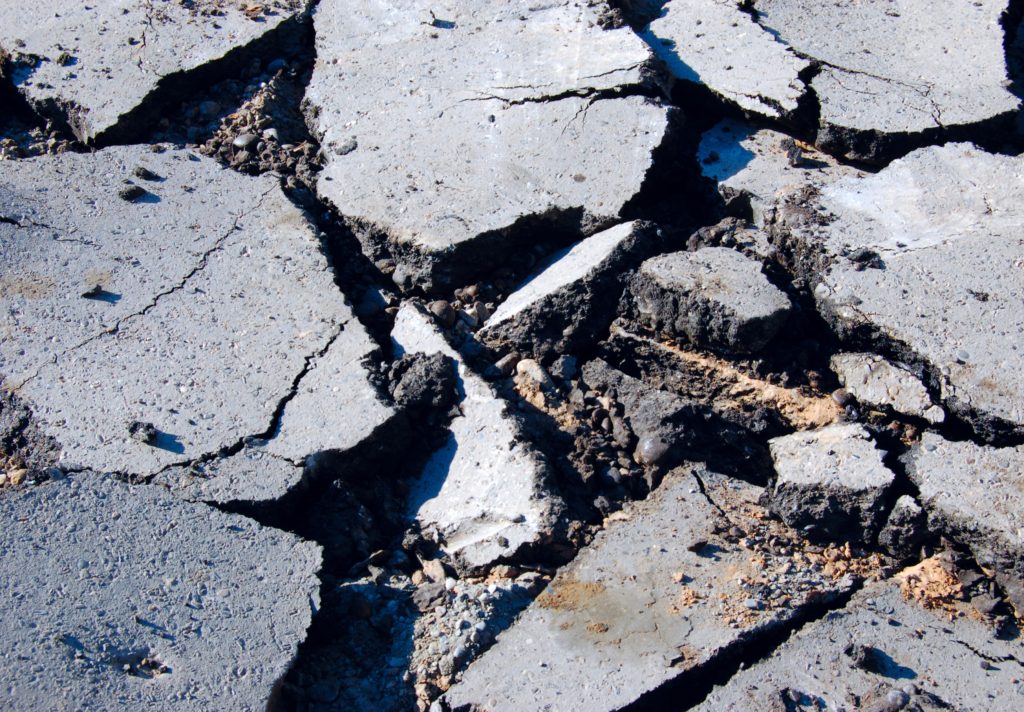Now that the last freeze is likely behind us, commercial and large-scale lots that are paved will soon require some maintenance. This is especially true for asphalt pavements that have poor sealcoating, or none at all. In fact, asphalt experiences a lot of common problems this time of year, all of which should be addressed and resolved once spring is official in swing.
Continue reading to learn which types of asphalt problems are most expected this time of year, and what you should do if your asphalt pavements fit these descriptions.

Cracking
There are various types of cracking that can develop in asphalt surfaces. Alligator cracks, block cracks, traverse cracks, and edge cracks are among the most common. Alligator cracking occurs when the subgrade, layers, or surface is either too weak or too thin to support the weight of traffic. You can easily identify alligator cracks because they form interconnecting lines in a pattern that literally resembles alligator skin.
Block cracks form in a pattern similar to alligator cracks, but on a much larger scale. Traverse cracking refers to cracks that form in the opposite direction of the pavement. Generally, underlying foundation weaknesses and cracks are to blame for traverse cracking, as well as extreme temperature changes. Edge cracks form along the edge of pavements as a result poor water drainage.
Potholes
Potholes are one of the most destructive road defects that can develop in asphalt pavement. They form mostly due to poor sealcoating or lack thereof, allowing water to seep deep down into the cracks and weaken the base soil underneath. Water then freezes and thaws several times, which further jeopardizes the ground level and solidity. As a result, the ground underneath expands, which causes the pavement to rise, then the water thaws, causing the ground to go back to normal. This cycle creates stability issues that eventually lead to crumbling pavement or crater holes.
Raveling and Rutting
Raveling is when pieces of asphalt begin to separate and form indentations in the surface of the pavement. It mostly occurs when asphalt is installed in weather that is too cold for proper curing. This is why it is important to hire a professional paving company for asphalt work. Rutting is form from traffic, and simply look like ruts, or wheel indents, in the road. Typically, this occurs when lower layers shift due to moisture permeation or poor surface quality.
Heaving and Depressions
Sinking and dipping can cause depressions in asphalt pavements, and be a result of several circumstances. Most often, soil erosion brought on by too much rainwater or precipitation over the winter season is to blame. As for heaving, raises and humps in asphalt are mostly caused by the expansion of clay-based soils beneath the concrete, which occurs from moisture accumulation.
Indianapolis Commercial Asphalt Repair You Can Trust
Call ACI Asphalt and Concrete at 317-549-1833 for licensed, bonded, and insured asphalt paving services in Indianapolis, Indiana. We offer a wide range of paving services for commercial and industrial properties, at the most competitive prices in town, including inspections, installation, replacement, repair, and more. Request a free quote, today.

